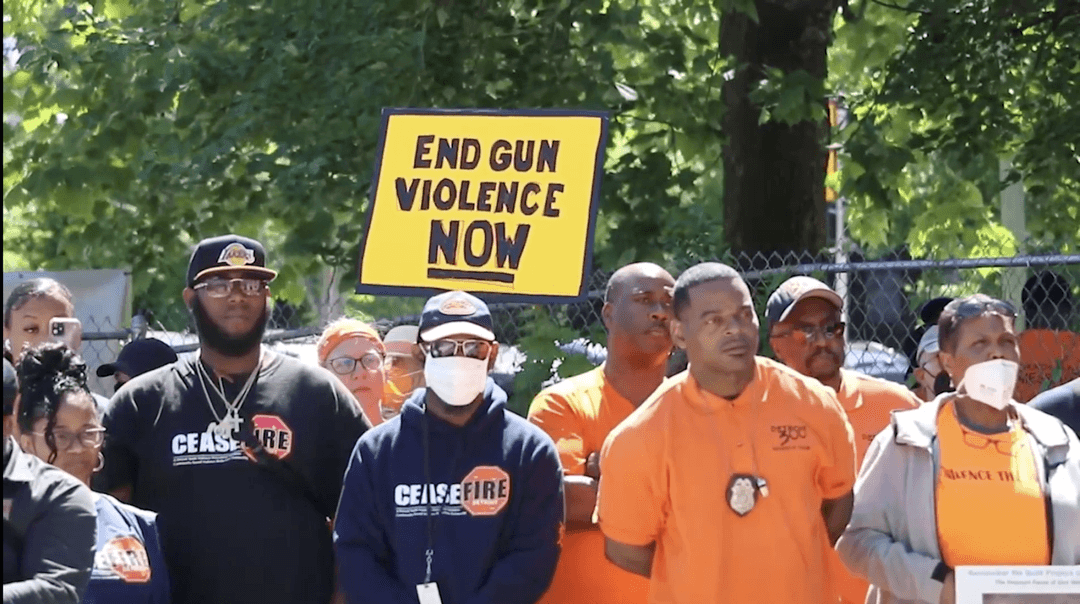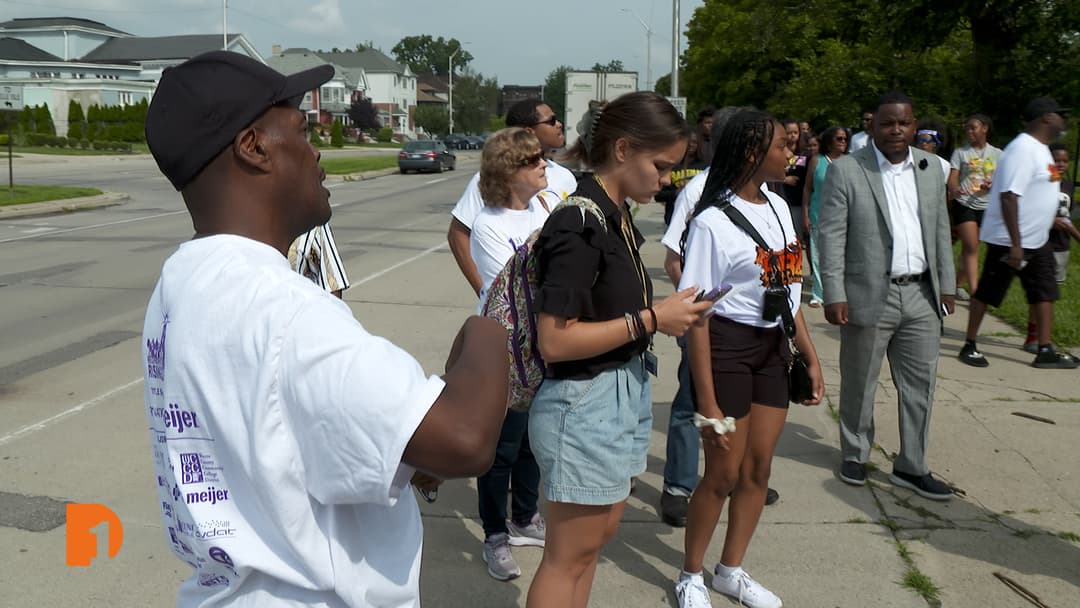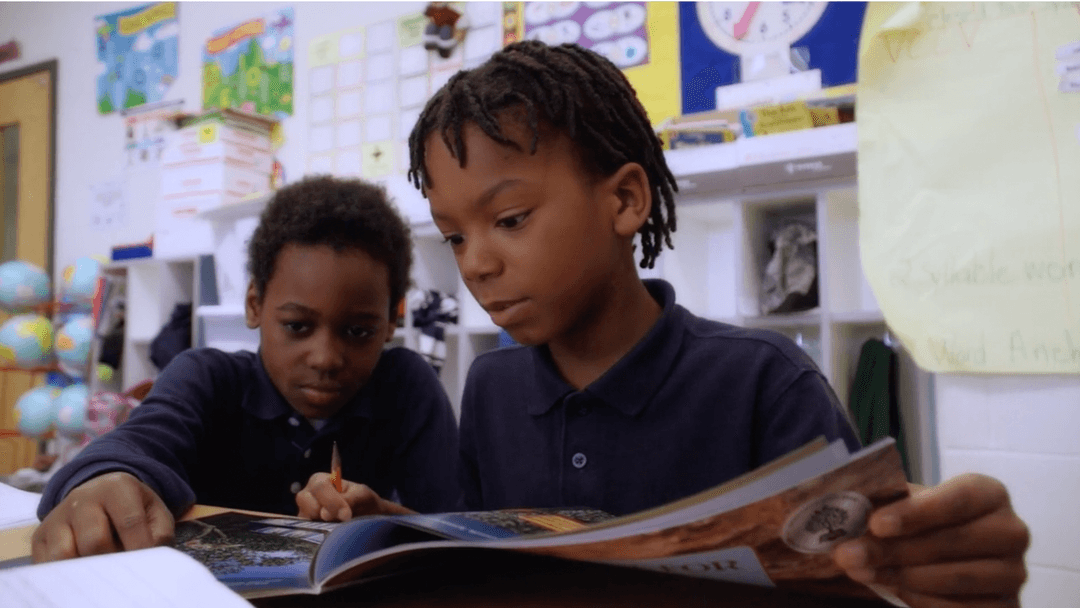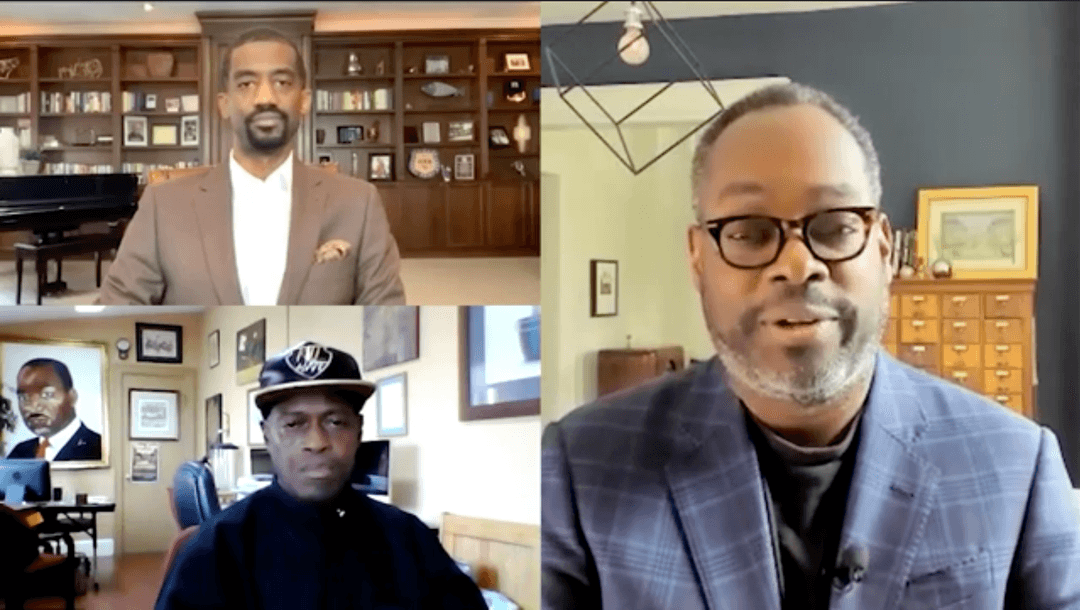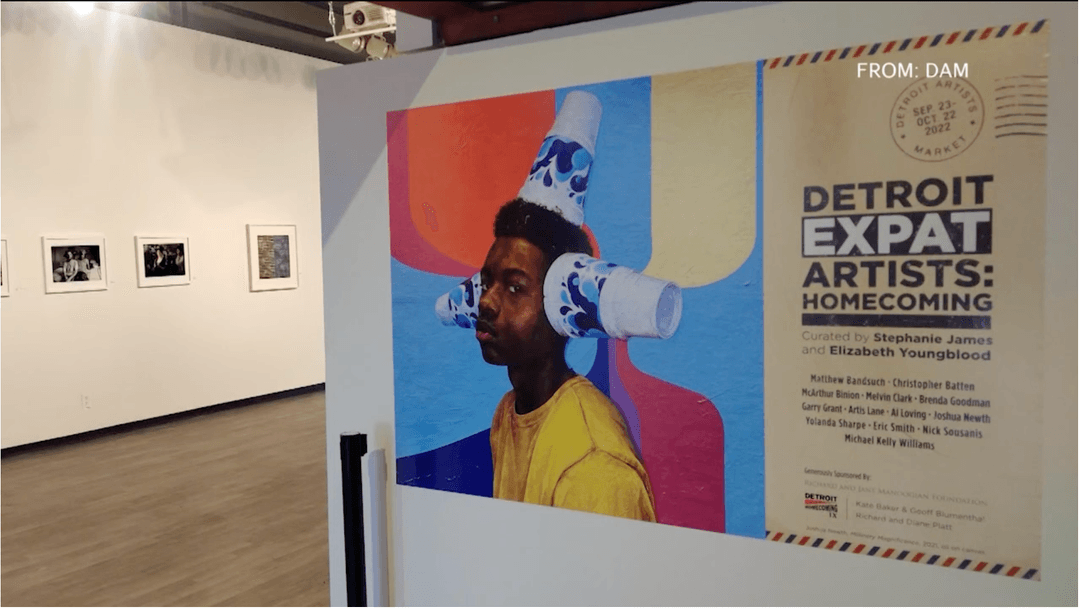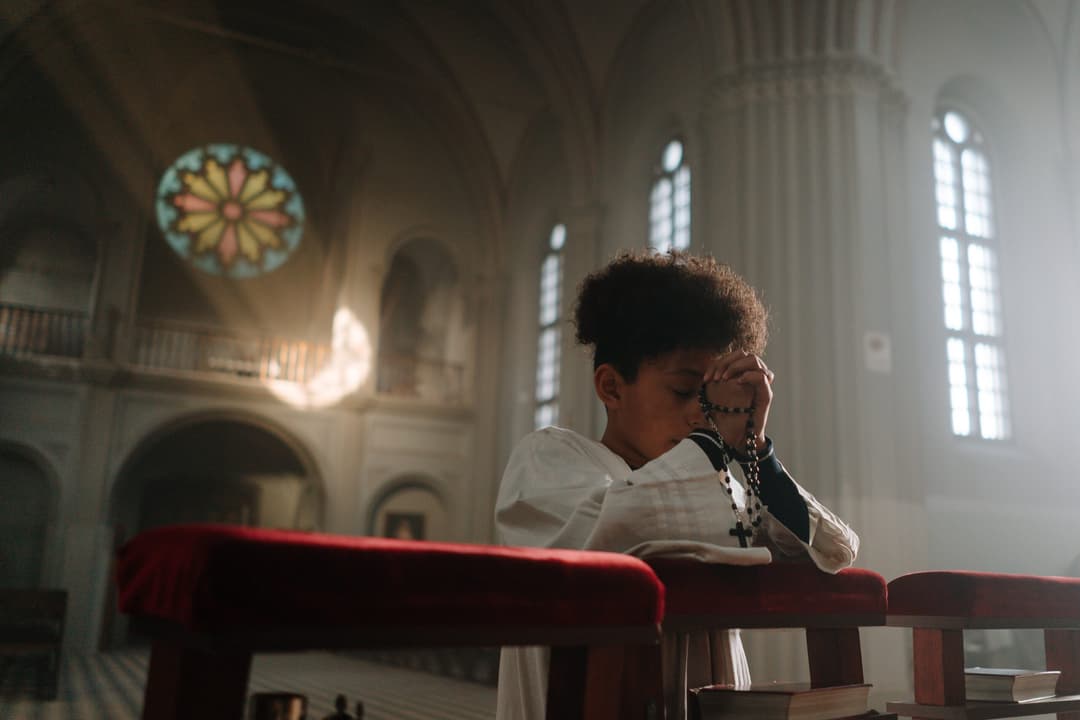Detroit’s State of the Hood summit brings civic, community leaders together to talk about gun violence
Oct 13, 2022
Detroit’s State of the Hood summit returned this year to talk about solutions for stopping gun violence. The annual summit of residents and community leaders is organized by Church of the Messiah Pastor Barry Randolph in the Islandview neighborhood on Detroit’s east side. The forum serves as a place for residents to share their biggest concerns about gun violence in their neighborhoods, and a space for civic and religious leaders to discuss solutions that can empower community members to create change.
Producer Marcus Green takes viewers to the 2022 State of the Hood summit to hear what religious and community leaders have to say about stopping gun violence in Detroit. Plus, summit participants explore the current resources and investments needed to reduce gun violence involving inner-city neighborhood youth.
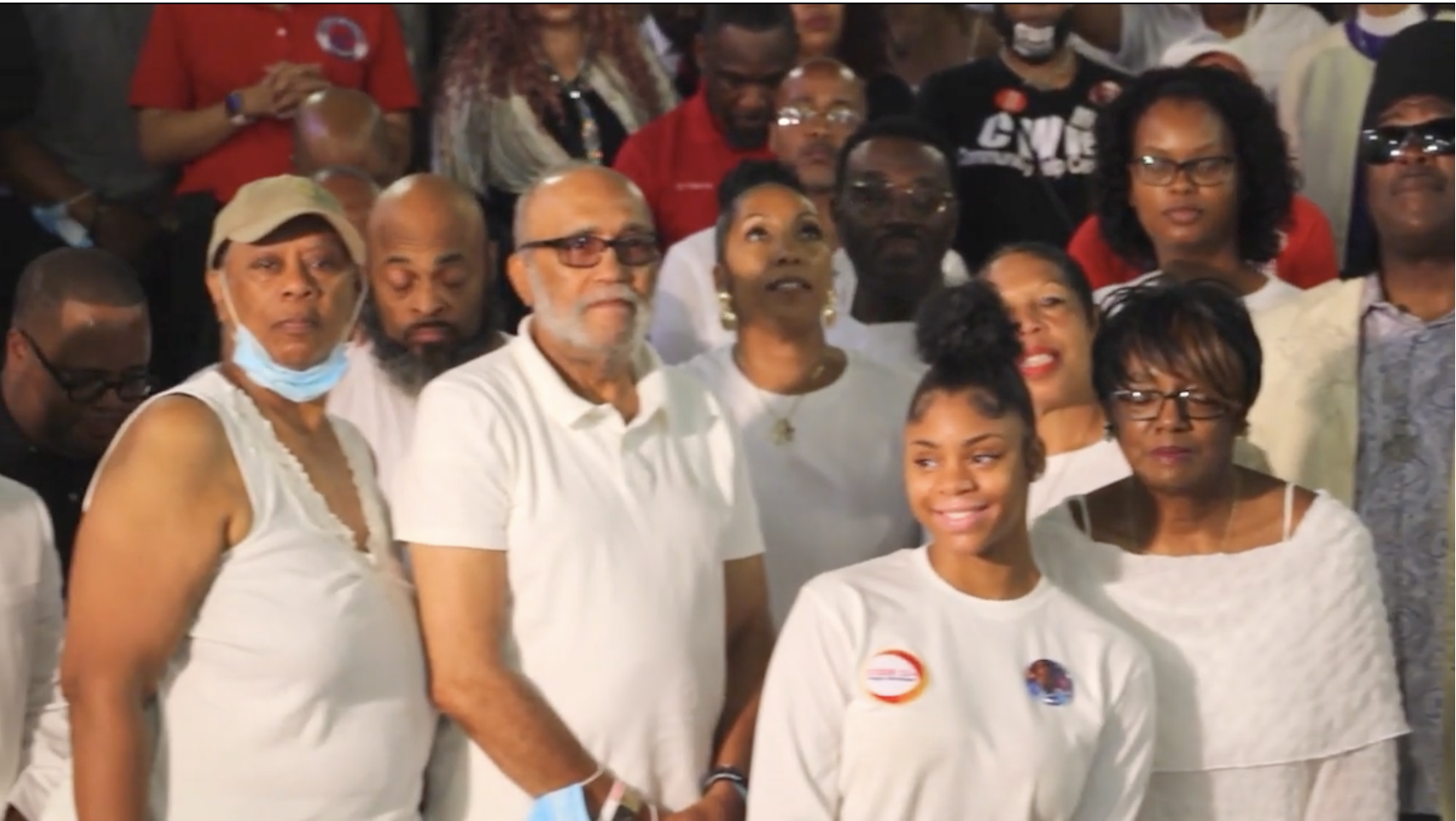
Full Transcript:
Pastor Ovella Davis, Always In Jesus’ Presence Ministries: Hood is that we would change the state of the hood. That we would use our gifts and talents and resources, and come together in a mindset of agreement about the missions that are happening in our community.
Darryl Woods, Sr., Detroit Area Regional Coordinator, Nation Outside: We asking everybody to roll up their sleeves, put on white, but represent peace. We want to hear peace in the homes. We want to hear peace on the streets, as well as the tweets. This is a peace movement that is going to not end because we are going to keep on keeping on.
Pastor Ovella Davis: We believe that as we continue to promote peace and wear peace and talk about peace, that peace will become as great as a reality, if not greater than violence.
Mary Sheffield, President, Detroit City Council: We have a lot more work to be done. And I want to stand here today to encourage all of you all to think outside of the box and to be proactive in your efforts to end gun violence. So, let us come together today and spend the majority of our time and money on prevention, not punishment.
Pastor Barry Randolph, Church Of The Messiah Detroit: There are churches and religious organizations that’s in the hood making things happen, but a lot of times it does not make the news. And what we want to be able to do is let everybody know, we’re gathering together to let everybody know that the hood is working together. The other thing we want folks to know is that the community groups and the religious organizations are working together and we’re working with our political leaders.
Pastor Ovella Davis: And we have to fight this battle in multiple directions. We have to be horizontal where we can reach those who need us most, but we also have to be vertical, so that we can call in the God who we need the most. And some have said it’s absurd for politicians, and preachers, and laborers, and teachers to come together, but God has called us to come together right now because this chill of murder is too cold. So, we’re coming together to bring light, and to bring white, and to bring salt, and to bring peace, and to bring a presence that is not familiar to this generation.
Angelique Peterson-Mayberry, President, DPSCD Board: So, when you think about life’s most vulnerable populations, there are our young people and our seniors. And the rest of us in the middle, we’ve got to make sure that we’re suited, rooted and booted for the work. It is indeed time out. It’s troubling that young people don’t know what peace looks like. That’s our fault, that’s our fault. Because what they do know is that when they hear gunshots, they hit the ground, they do know that. They do know that they are becoming desensitized because there’s one too many stories being told.
Pastor Barry Randolph: All throughout the country, we talk about what’s divided, what’s divided, what’s divided. And a lot of stuff in our community and neighborhood is not divided and people are working together. For us to come together today, to say that we’re going to do the city in white, to say that we’re bringing together different denominations, different faiths, all coming together for the same purpose, coming together with our community leaders and coming together with our religious leaders is amazing. And one of the most amazing things that I think that’s about to take place is we’re going to be able to work directly in the school system. We’re going to work directly in the school system to be able to work with the children who are the most vulnerable.
Angelique Peterson-Mayberry: So, what would I love to see in a school? One, I want them to know what peace looks like. It’s really hard to have achievable results on something when you don’t know what those results are. So, I want them to know what peace looks like. And then, know that they can have peace, it is absolutely possible. Whatever those challenges are, we need to identify those challenges and address those head on so that the young people can, when they come to school, they can learn. And that learning looks really different. It’s no longer just reading, writing and arithmetic, but maybe it’s about the wraparound services that are needed.
Maybe it’s the social-emotional learning that needs to happen. We do a really good job of that, but we could always do better because until we can have not just a day of peace, but a week of peace, a month of peace, and we keep moving that needle further and further, people can see that it is possible, it is achievable, but it requires a commitment and due diligence from everybody involved in the ecosystem.
Mary Sheffield: I have been intently focused on doing my part to end gun violence in our community. Now, with that being said, I have taken a more proactive approach than the typical reactive approach that we typically see with the government in the criminal justice system. There are countless studies that suggest that we cannot police our way out of violent crime. So, my approach has always been about meeting people where they are, attacking the root cause of violence, and using my voice and my position to further the cause of peace. There is an old saying that says, “I don’t care how much you know until I know how much you care.”
Angelique Peterson-Mayberry: So, the time is now. If not us, then who? Enough is enough.
Stay Connected:
Subscribe to Detroit PBS YouTube Channel & Don’t miss American Black Journal on Tuesday at 7:30 p.m and Sunday at 9:30 a.m. on Detroit PBS, WTVS-Channel 56.
Catch the daily conversations on our website, Facebook, Twitter and Instagram @amblackjournal.
View Past Episodes >
Watch American Black Journal on Tuesday at 7:30 p.m. and Sunday at 9:30 a.m. on Detroit Public TV, WTVS-Channel 56.
Stay Connected
Subscribe to Detroit PBS YouTube Channel & Don’t miss American Black Journal on Tuesday at 7:30 p.m. and Sunday at 9:30 a.m. on Detroit PBS, WTVS-Channel 56.
Catch the daily conversations on our website, Facebook, Twitter, and Instagram @amblackjournal.
Related Posts
Leave a Reply
Your email address will not be published. Required fields are marked*
